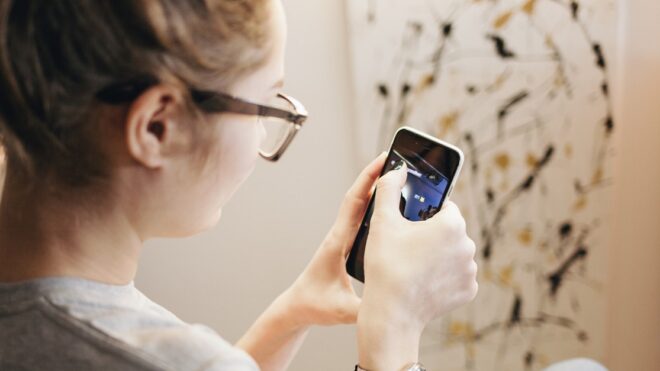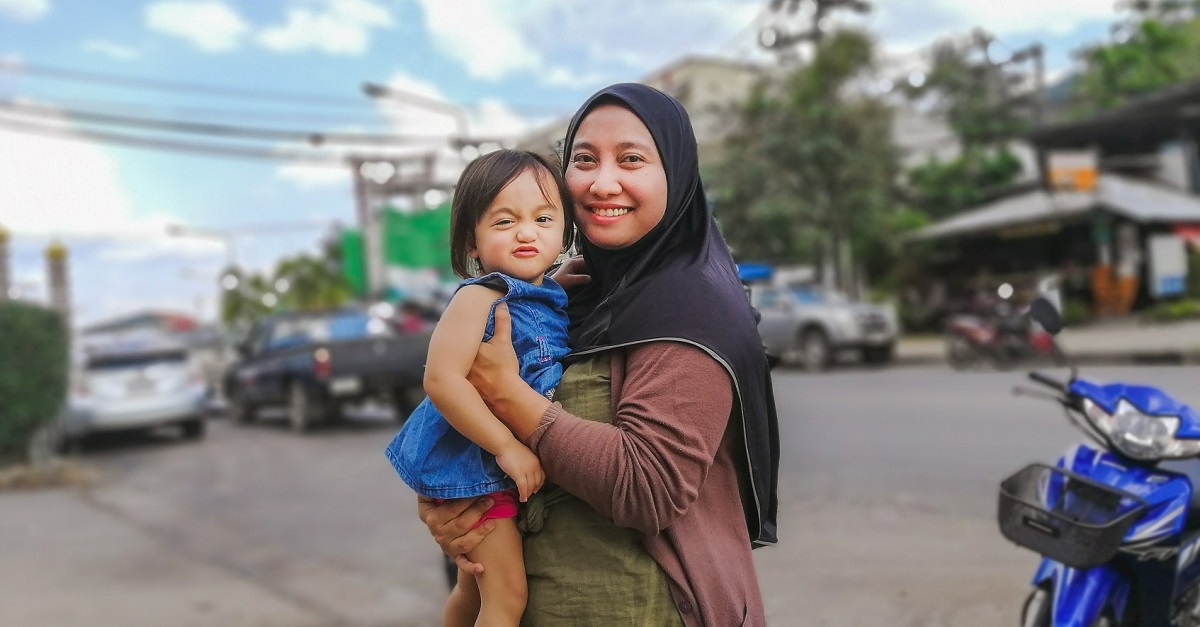
The world is a scary place right now. The one group who might not understand why? Toddlers. As the mother of a 3-year-old daughter, it's been hard trying to explain to her why she can't go outside or use playground equipment. She especially misses interacting with kids her own age. Our neighborhood is chock-full of children, so she often looks out the window in despair. It's hard to talk to your toddler about something so serious. Sure, she gets it. But she's not really getting it.
It's truly a tough topic to bring up. While I've always been under the impression that she's fearless (for example, she held a fuzzy spider she found during a daily walk without thinking twice), it's something I don't want her to panic over. In fact, I want her world to change as little as possible. I don't want her to sense something is wrong, or worry about never seeing her friends again. It's very tough to do.
And that's why I have to give it up to the professionals. I wanted to make sure that I was getting my facts straight. It's hard to predict how children might interpret things, and I don't want to bring any unnecessary anguish. That's why I had the privilege of connecting with Ronald Stolberg, PhD, a clinical psychologist and family therapist.
1. Focus more on handwashing instead of 'germs' and 'viruses.'
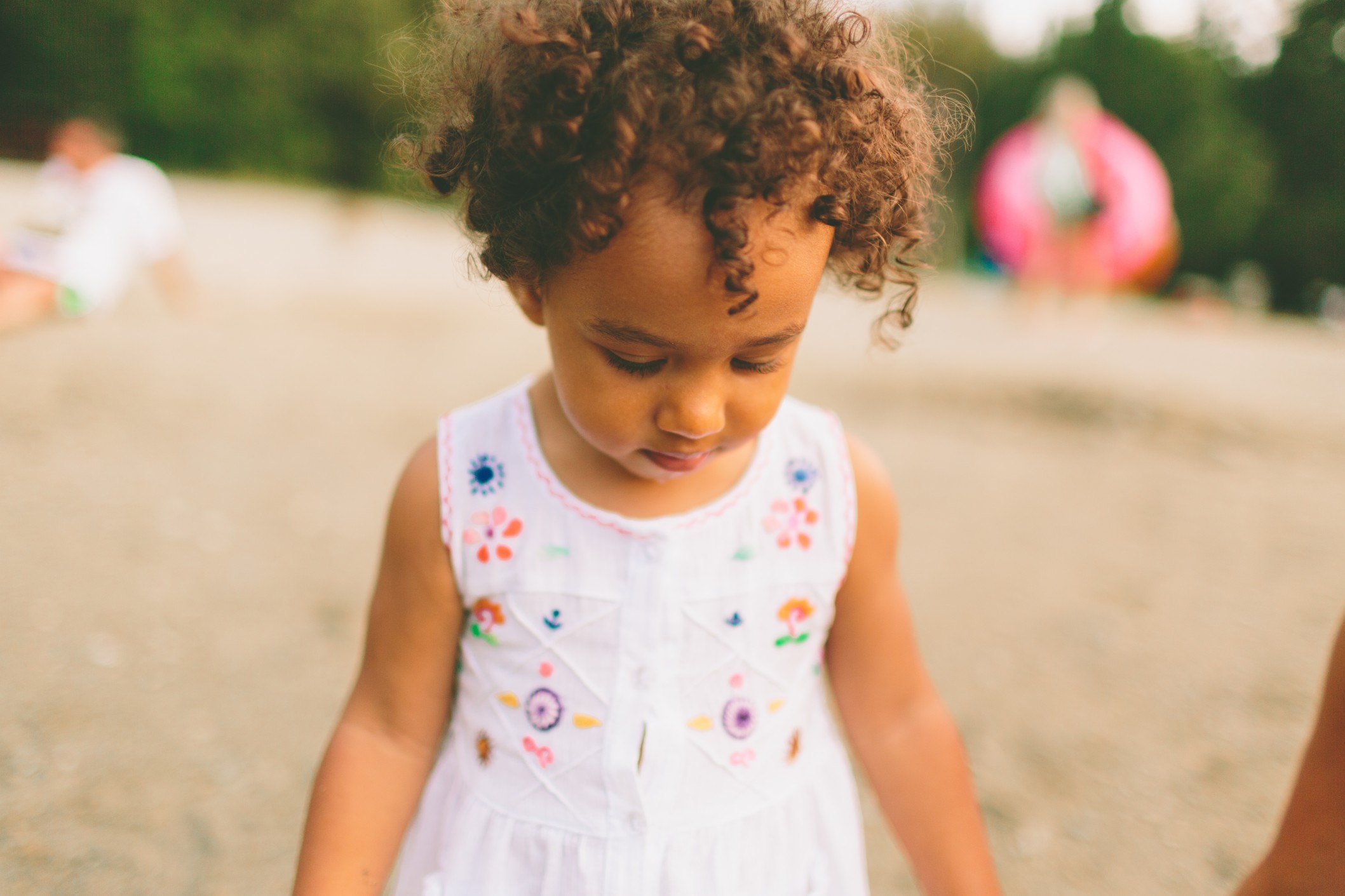
I figured that a good method to use would be to talk to her about germs. But Stolberg said that it may still be a difficult topic for those who are 3 and under. It's true — my daughter is a quick learner, but she and I had never discussed the subject before. But we have been focusing on the importance of handwashing, to get her hands clean.
"[Ages] 1 to 3 years old is still probably too young to try to explain germs and a virus. Those are abstract concepts they simply aren’t ready for," Stolberg said. "At this age, it is great to start teaching hygiene and the importance of handwashing. With very young children we usually end up washing their hands with them, and it can be a fun, interactive moment."
Our favorite activity is to sing while handwashing. It makes things a lot easier and keeps her hands under the faucet for longer than they would have been otherwise.
2. Avoid watching the news when they're around.

Everyone has that one moment from childhood where they walked in on something scary happening on television. Even though we've all gotten used to the terminology of this health scare, it can be frightening for our children. Positivity is really big here, and the experts agree. One of the best things to do is to make sure all of the news comes from you.
"Parents need to control what young kids know about this crisis," Stolberg said. "It's OK to explain to a child that there is a really bad cold going around and the doctors want everyone to stay home so they don’t get sick. You want to assure them that they are safe at home."
That means that you also shouldn't be talking about it with others while your children are around. Young kids can be very smart. They pick up more than you realize.
3. Have a game plan if they ask questions.
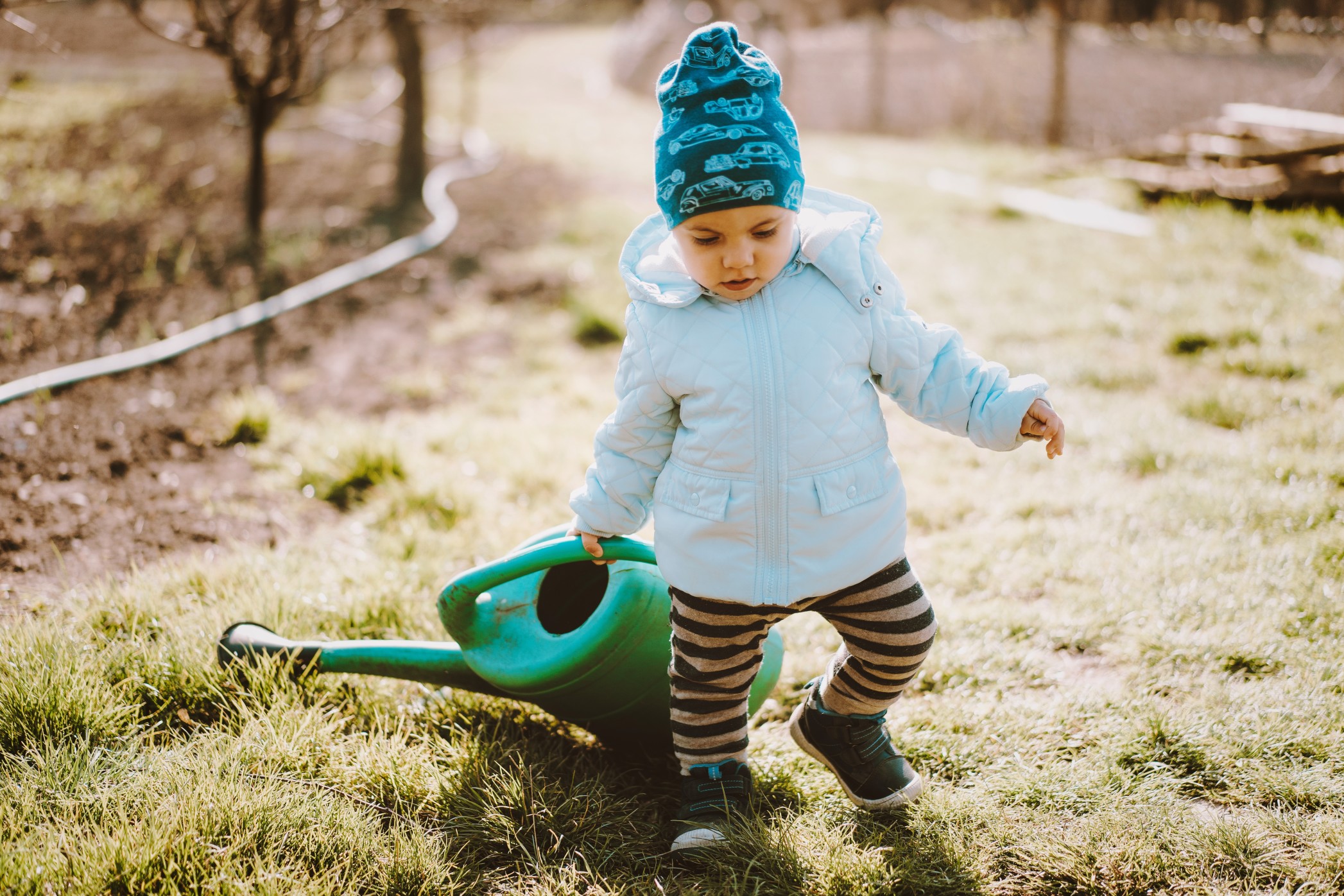
Most of us might not be fully aware of what day it is right now. Under these circumstances, it's harder to focus. That means that we may be blasting a news report while we assume our toddler is taking a nap. Or they might overhear someone outside talking about something scary.
"Kids are likely to hear things about the crisis no matter how hard we try to shelter them from it," said Stolberg. "It is our job to minimize what they hear and put it into a context that makes sense for them. Young kids just want to know they are safe; it's our job to make them feel that way."
That means you should have a game plan. Rehearse the comforting explanation you'll use, and make sure every adult in your house is on the same page. If mom's saying one thing and dad is saying something completely different, that can be confusing.
4. Tell them that their friends are also social distancing.

It may be tough for your toddler to understand that these rules are in place for everyone. But if they do, it might be easier for them. That's one of the important reasons why it's important for all parents to follow these rules. The second another toddler sees a group playing together, it becomes much tougher.
There are also a lot of wonderful resources to help encourage your toddler. Sesame Street just aired Elmo's Playdate, which features Elmo — along with a few notable celebrities — meeting up and chatting virtually. That could help your child realize that even their favorite characters are following the rules.
5. Introduce them to technology.
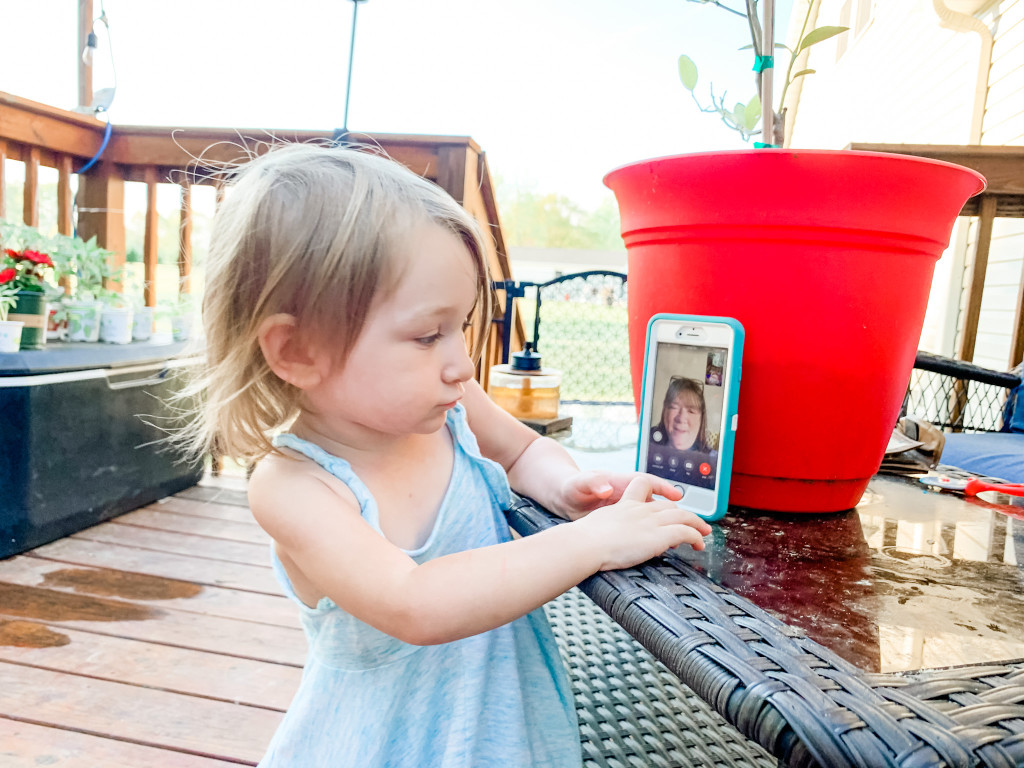
Have you ever video chatted with a 3-year-old before? It's not the easiest thing around. However, hosting your own virtual playdates may be a fun activity to include in your schedule. They can teach your child that there are other ways to connect with people. Plus, your child will get better at it as time goes on. Your family will love the ability to see your toddler's face.
Just make sure that when you talk to family, you let them know ahead of time that unfortunate news is off the table. If they want to talk to you about serious stuff, make sure it happens at a time when your child isn't listening.
Virtually chatting with other parents will also be beneficial to you. If you have close friends with kids, consider a video chat session. They'll understand if your toddler accidentally hangs up on them or starts belting out their favorite song. It's all part of parenthood. As Stolberg says, it's important for children to know that social distancing doesn't mean social isolation.
6. Don't avoid the topic if your child is sensitive.
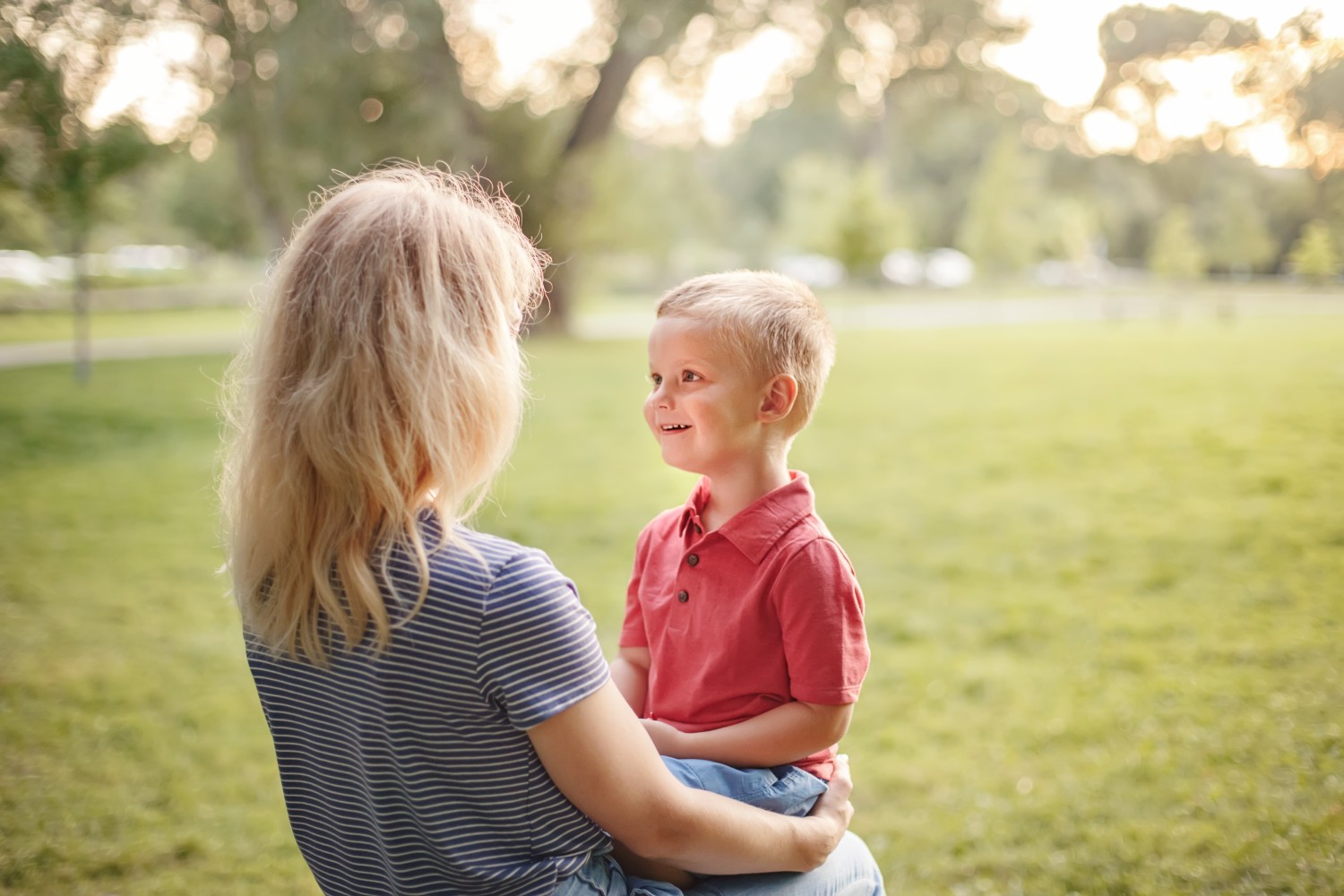
It can be a big problem if you're overly worried about how your toddler will react to the news. Some kids will brush it off; others will start to worry or ask additional questions. Your job as a parent is to inform them and remind them that your job is to make sure they're OK.
"Even young, sensitive kids need an explanation for why everyone is home and school is canceled," Stolberg said. That means that communication is important. It's up to you to figure out how to let them know.
The worst thing to do is try to hide information from your kids. Sensitive kids, especially, may assume the worst. Plus, in talking to them, you're also building trust. You need to be the leader they need.
7. Look after yourself before starting the conversation.

Back when we were younger, we thought our parents were fearless. We assumed they always knew best and that their age meant they were responsible enough to lead and take action. Now, as adults, the secret is out. Anyone can feel nervous or insecure.
One of Stolberg's greatest pieces of advice is to make sure you're in a good place before you talk to your young children. "We can only be emotionally available to our children when we are practicing good self-care strategies," he said. "Important ways to do this include getting enough sleep, eating healthy foods, relaxing, learning to breathe, or doing yoga/mindfulness when you are anxious or stressed."
No matter how busy your workday is, and how cramped your schedule has become, you need a break. Even if it's a walk around the house. Otherwise, you might end up scaring your children or making them feel as if the world is coming to an end. It's not. Globally, we'll all get through this together — and things will make sense again soon.


